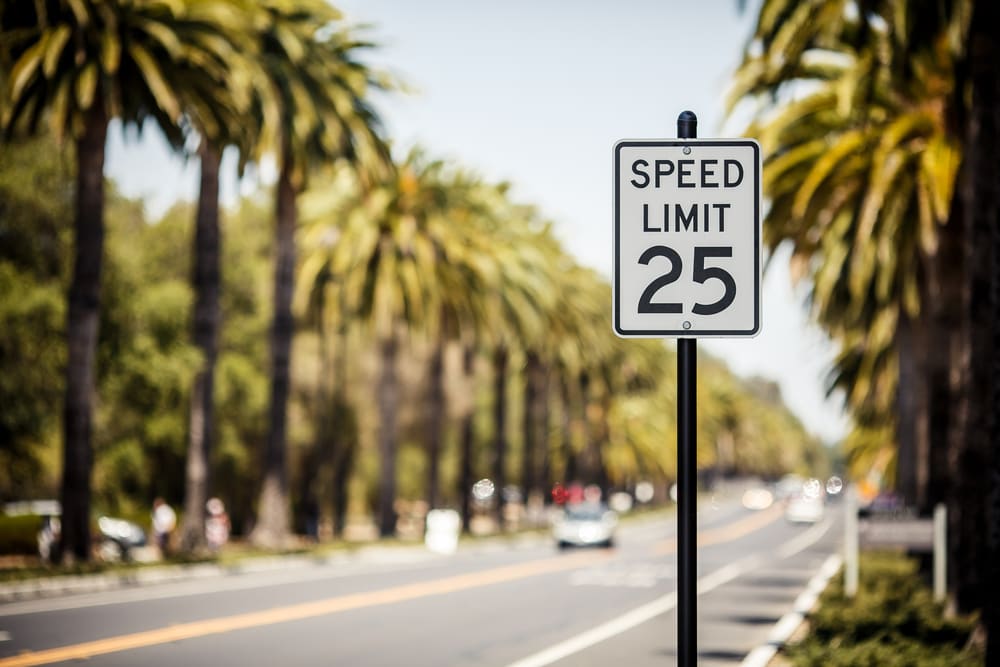

Following is an overview of the laws, limits, and fines as they relate to speeding traffic violations in the state of Florida.
Speed limits in Florida
70 mph: various freeways, rural interstate highways, and some urban highways and rural limited access toll roads, as posted
65 mph: rural four-lane highways, most urban freeways and tollways
60 mph: two-lane sections of US highways, most rural state highways, some freeways and tollways
55 mph: other areas including most county roads, unless posted otherwise
30 mph: business and residential districts
10-20 mph: school zones during times specified on signs and during flashing yellow lights
Florida code on reasonable and prudent speed
Maximum speed law:
According to section 316.183(1) of Florida vehicle code “No person shall drive a vehicle at a speed greater than is reasonable and prudent under the conditions and having regard to the actual and potential hazards then existing.”
Minimum speed law:
According to section 316.183(5) of Florida vehicle code “No person shall drive a motor vehicle at such a slow speed as to impede or block the normal and reasonable movement of traffic.”
Due to variations in speedometer calibration, tire size, and margins of error in speed-detecting technology, it’s uncommon for an officer to pull a driver over for going less than five miles above the speed limit. However, technically any amount over can be considered a speed violation so best practices are to stay within the limit.
Also of note, there are places in Florida – such as the Tamiami Trail in the Big Cypress National Preserve – that have reduced nighttime limits due to endangered species in the area.
While it may be difficult to fight a speeding ticket in Florida due to the absolute speed limit law, a driver may choose to go to court and claim their innocence based upon one of the following:
The driver may oppose the determination of speed. In order to claim this defense a driver must know how his or her speed was determined and then learn how to disprove its accuracy.
A driver may claim that an emergency situation caused the driver to break the speed limit in order to prevent injury or damage to themselves or others.
The driver may claim a case of mistaken identity. If a police officer clocks a driver speeding and subsequently has to find them again in traffic, it’s possible that they could make a mistake and pull the wrong car over.
Penalty for exceeding the speed limit in Florida
First-time violators may:
Be fined between $25 and $250
Have their license suspended for up to 30 days
Penalty for reckless driving in Florida
In this state, there is no set speed that’s considered reckless driving. That determination rests upon the violation’s circumstances.
First-time violators may:
Be fined between $25 and $500
Be sentenced to up to 90 days of jail time
Have their license suspended for up to 30 days
The fines for a speeding ticket in Florida vary from county to county. Drivers may also be able to reduce their fine by voluntarily attending traffic school.



